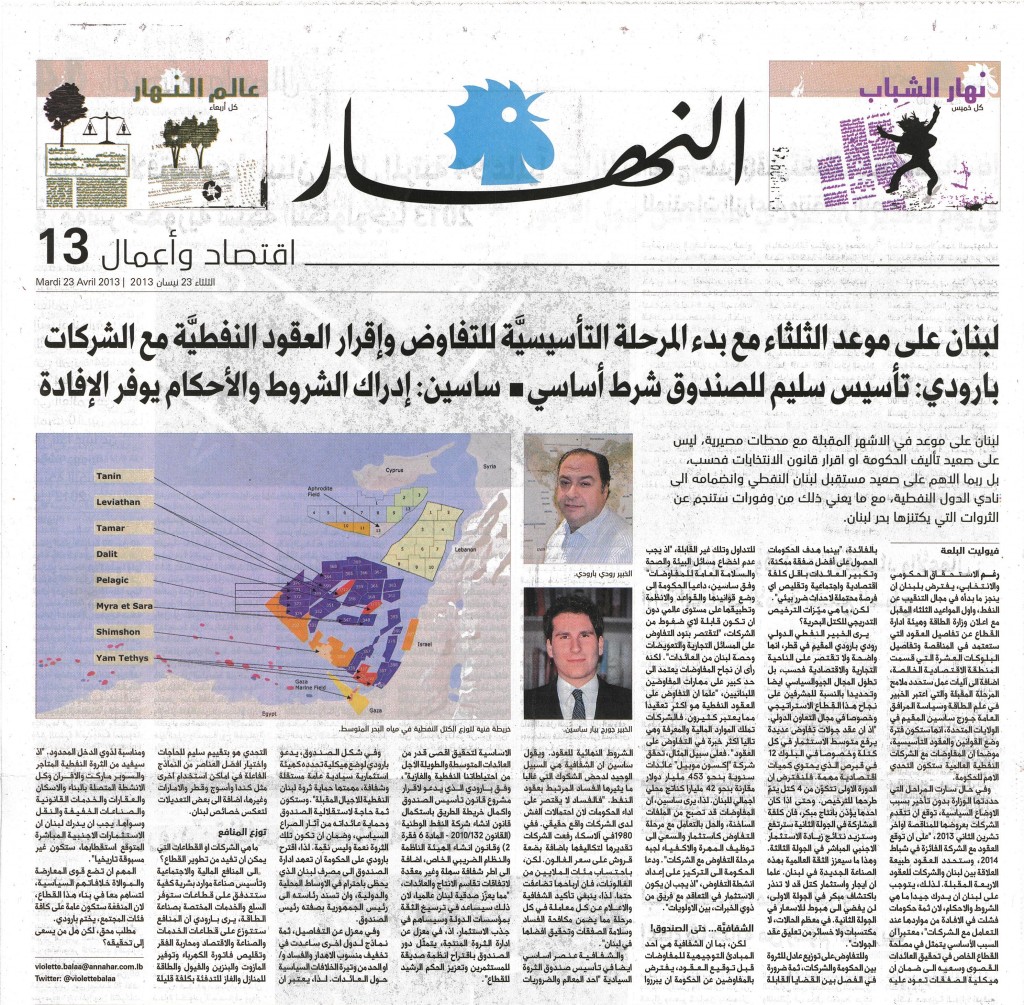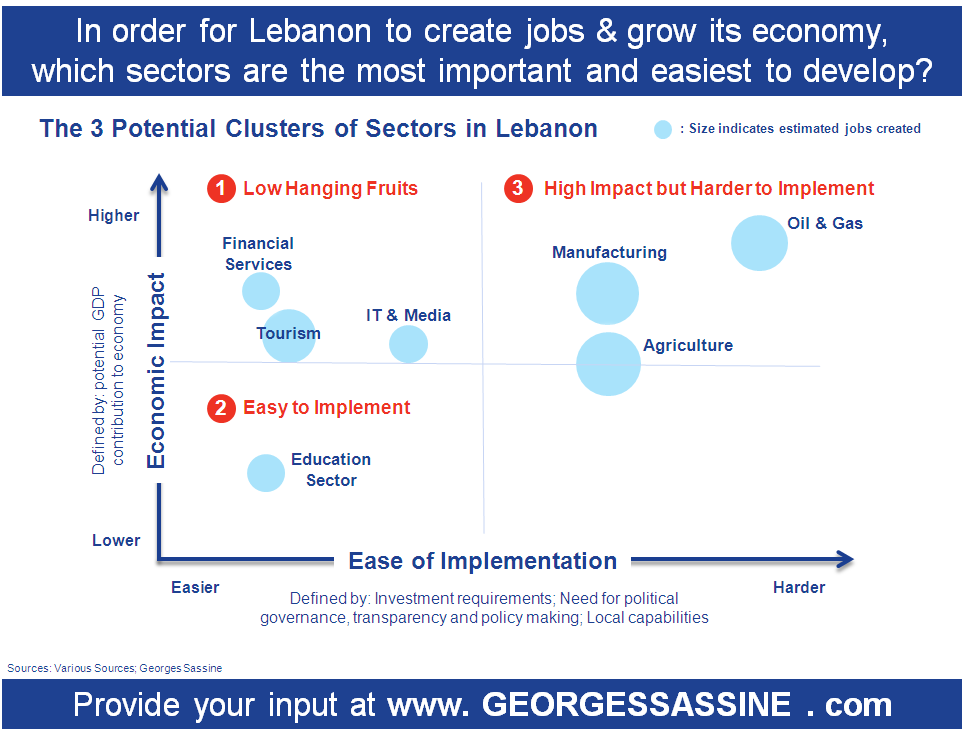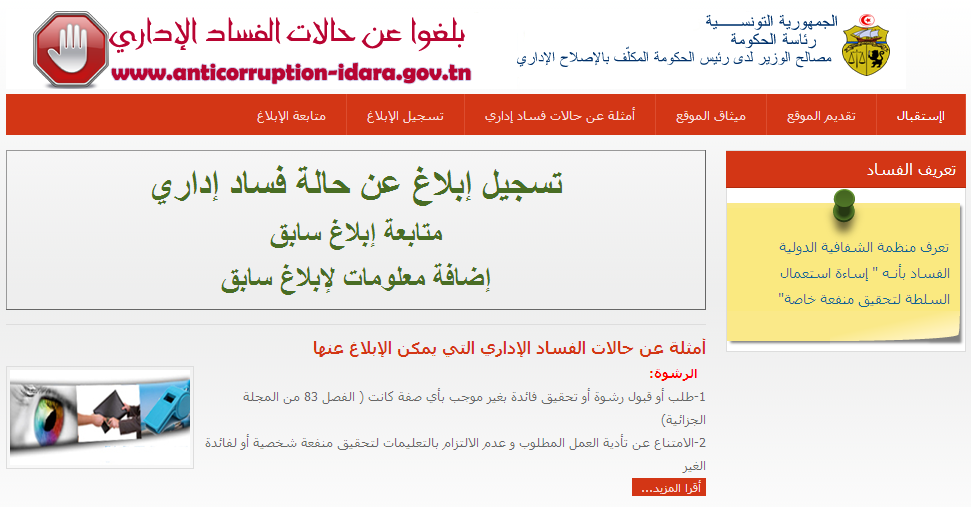This article originally appeared on April 15, 2015 in The Huffington Post
Today, a group of Lebanese from across the world launched an initiative focused on supporting a vital sector for the future of Lebanon that we hear relatively little about: Lebanon’s potential oil and gas industry.
While most of the current news out of the country is of political instability, corruption and incompetence, there is an untold story of hope. There are creative individuals working with absolute determination to tackle Lebanon’s toughest problems. They are inspired by the belief that it is possible to make their country a better place. Their small-scale efforts will lead gradually to larger ones and eventually energize a wider change in Lebanon.
The Lebanese Oil and Gas Initiative (LOGI) could potentially be one of such efforts. It is a first of its kind initiative in Lebanon, and its story is one worth being told.
The backstory is that Lebanon could potentially have large oil and gas deposits. While the opportunity could significantly improve Lebanon’s economy and the welfare of Lebanese citizens, high corruption, weak rule of law and limited technical expertise constitute the highest risks to Lebanon’s oil and gas sector. If these risks are not well managed, Lebanese citizens could be left worse off and Lebanon’s economic and social challenges aggravated.
Imagine a Lebanon in the future where oil turned out to be less of a blessing and more of a curse: oil revenues are siphoned away to fund political parties, help them maintain power and undermine democracy; violence and conflict erupt over the ownership of natural resources; and an economy over-reliant on energy exports gets severely impacted by volatile commodity prices … all real life examples witnessed across several countries mismanaging their natural resources.
The timing to proactively address these risks and avoid the resource curse is now! The backbone of the industry is being shaped today and requires our early engagement, before policies are set in motion and contracts locked for decades.
A significant gap witnessed today is the need of an organization that calls for transparency, accountability and sound governance of Lebanon’s petroleum industry.
Beyond that role, given that Lebanon’s petroleum resources are not confirmed yet, there is also an urgent need to prudently manage expectations of Lebanese citizens and government officials. Oil and gas discoveries often trigger an explosion of unrealistic expectations and require a communication strategy that builds a critical mass of citizen understanding through easy to grasp facts.
This is exactly what LOGI is set to do. It strives to inform Lebanese citizens, and influence decision-makers on the key issues facing Lebanon’s oil and gas industry. Its end goal is to help Lebanon maximize the economic and social benefits of its oil and gas wealth, and avoid the resource curse.
If successful, LOGI could play a leading role in creating a system of checks and balances and facilitate coordination across various stakeholders including citizens, civil society, business, government and international organizations.
The talent is out there
There are many Lebanese experts in and outside of Lebanon with a wealth of experience in the oil and gas industry. Some are engineers, geologists, and lawyers. Others are management consultants, economists, and environmentalists. They are scattered far and wide – in countries such as the United States, Brazil, the United Kingdom, Saudi Arabia, Angola, and Australia. What unites them is their love of their home country, and deep expertise of a sector that could profoundly impact the future of Lebanon.
LOGI aims to create a network of these experts and leverage their knowledge, providing a platform to contribute and help Lebanon develop a healthy oil and gas sector.
If properly financed, governed and connected together these concerned Lebanese citizens, regardless of their location, could have a tangible and real impact on Lebanon.
How can you make a difference?
Many of us ask ourselves similar questions: how can I get involved in solving pressing issues in the World? How do I tap my own potential to drive real change?
Supporting LOGI is one way you can contribute to driving change, in a country that urgently needs it.
You can join LOGI’s network of volunteers, donate, and spread the word.
LOGI is about real people doing real things. Join us in this challenging but exciting journey!
Georges Pierre Sassine is an energy policy expert and co-founder of the Lebanese Oil and Gas Initiative (LOGI). He writes about Lebanon’s public policy issues atwww.georgessassine.com.
This article originally appeared on April 15, 2015 in The Huffington Post





